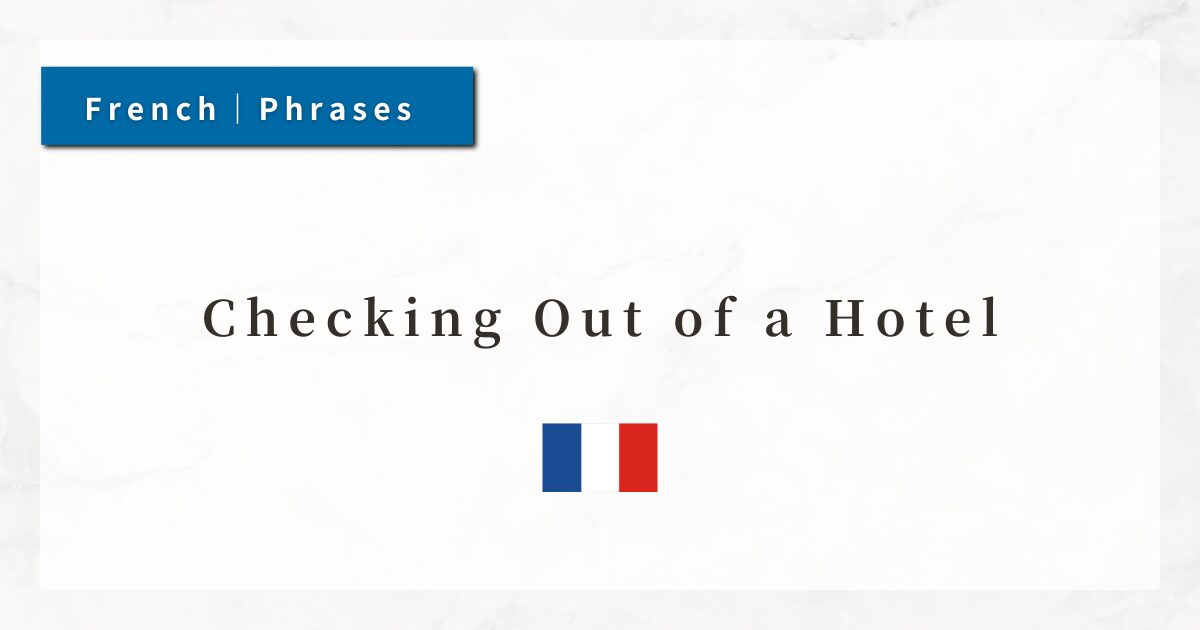#19 Basic Conversations for Ordering at a Café|French Ordering Expressions

One of the most common situations when visiting France is ordering at a café.
If you can order coffee or tea with confidence, your travel experience will become much more enjoyable.
In this lesson, I will introduce essential phrases for ordering at a café, along with expressions for quantity, politeness, and typical service phrases used by staff.
Dialogue

Bonjour, vous désirez ?
(Hello, what would you like to order?)

Bonjour. Je voudrais un café, s’il vous plaît.
(Hello. I’d like a coffee, please.)

Avec du sucre ou du lait ?
(With sugar or milk?)

Juste un peu de sucre, merci.
(Just a little sugar, thank you.)

Très bien. Et avec ça ?
(Very well. Anything else?)

Oui, je prendrai aussi un croissant.
(Yes, I’ll also have a croissant.)

Parfait. Je vous apporte ça tout de suite.
(Perfect. I’ll bring that right away.)
1. Basic Expressions for Ordering
The most common phrase is: “Je voudrais 〜.” (I would like 〜).
- Je voudrais un café
. (I’d like a coffee.) - Je voudrais une salade.
(I’d like a salad.)
voudrais is the conditional form of vouloir (to want). It politely expresses a request, making it very suitable for ordering.
- Je prends un croissant.
(I’ll have a croissant.)
Although it literally means “I take,” in the context of ordering it is natural, similar to “I’ll have …” in English.
2. Politeness Phrases
In France, it is customary to add “s’il vous plaît” (please) when ordering. Without it, your request may sound abrupt.
- Un thé, s’il vous plaît.
(A tea, please.)
After receiving your order, adding merci (thank you) makes your interaction sound natural.
3. Quantity Expressions
When ordering food or drinks, French uses indefinite articles (un / une / des).
- un café
(a coffee → masculine noun) - une bière
(a beer → feminine noun) - des croissants
(some croissants)
Articles must agree in gender and number with the noun.
When specifying exact quantities, use “number + plural noun” instead of an indefinite article.
- deux cafés
(two coffees) - trois thés
(three teas)
4. Typical Phrases Used by Waitstaff
Café staff often ask:
- Et avec ça ?
(Anything else?) - Ce sera tout ?
(Will that be all?)
Customers can reply:
- Ce sera tout, merci.
(That’s all, thank you.)
Knowing these exchanges helps conversations end smoothly.
5. Adding Details to Your Order
To specify preferences or style of order:
- sans sucre
(without sugar) - avec du lait
(with milk) - à emporter
(to take away) - sur place
(for here)
- Un café sans sucre, s’il vous plaît.
(A coffee without sugar, please.) - Deux cafés à emporter.
(Two coffees to take away.)
Summary
- Je voudrais / Je prends
→ Standard expressions for ordering at cafés. - s’il vous plaît / merci
→ Essential politeness markers; always add them. - un / une / des / number + noun
→ Rules for counting drinks and food. - Et avec ça ? / Ce sera tout ?
→ Typical phrases used by staff to confirm orders. - sans sucre / avec du lait / à emporter / sur place
→ Useful phrases to specify order details.




